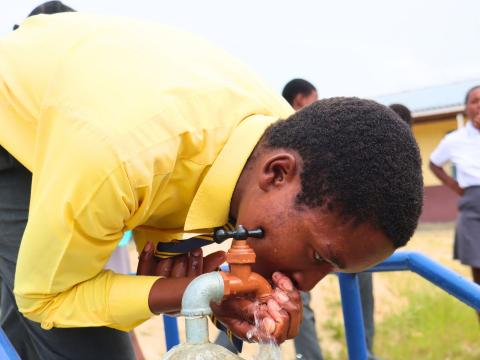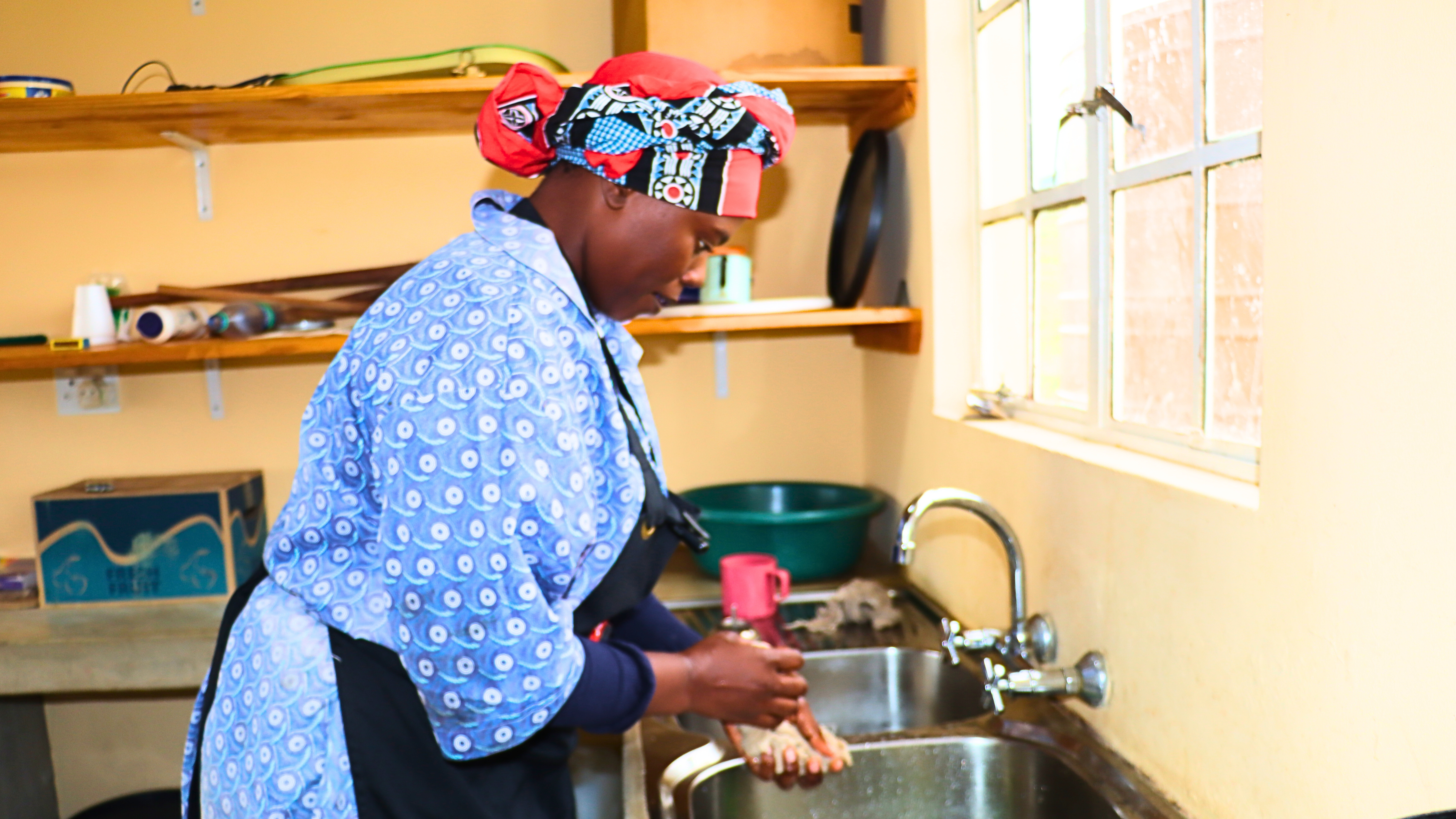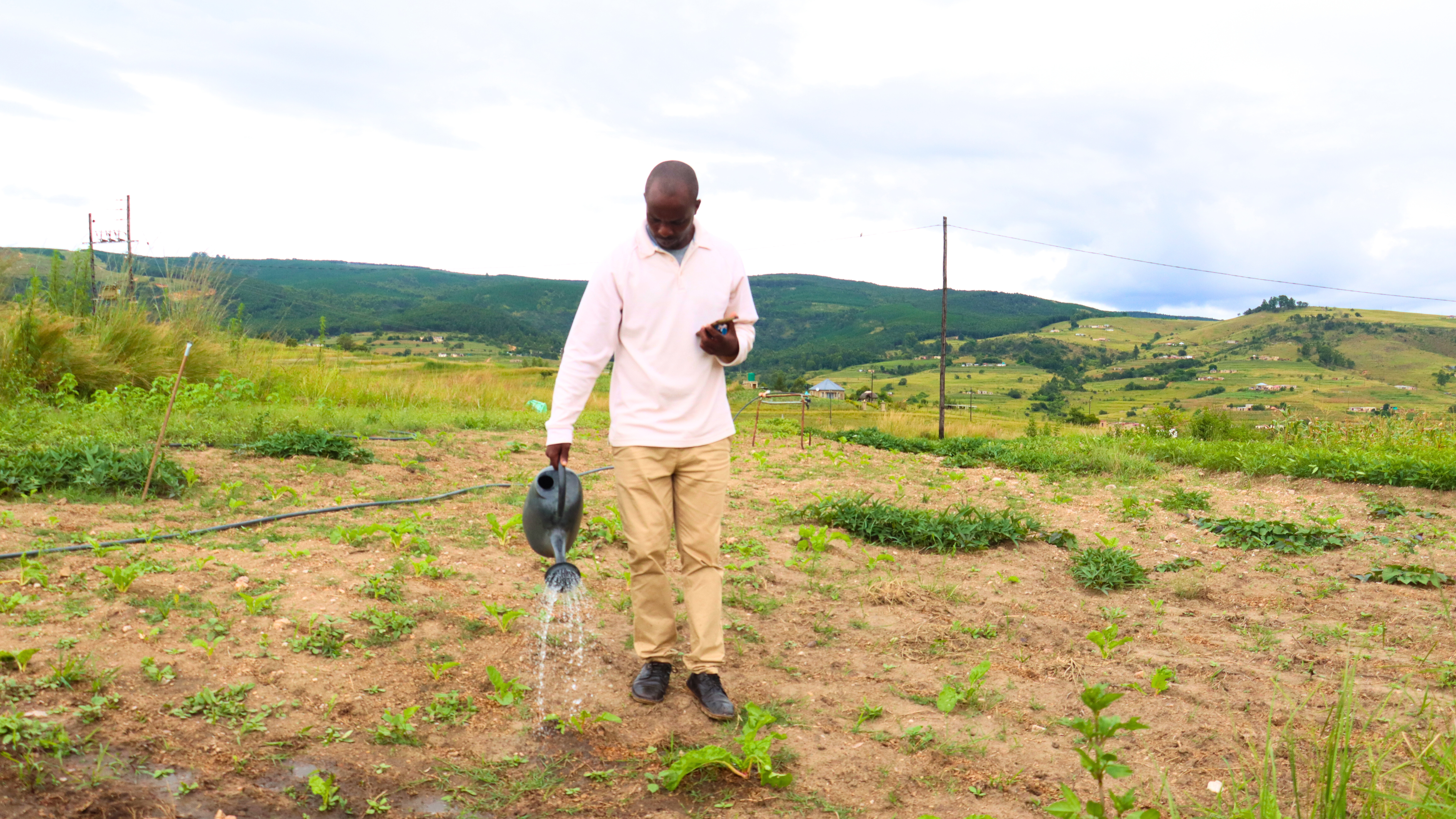Access to Water Improves School Feeding and Learning Environment

Access to water in schools is one of the ways World Vision Eswatini aims to help improve school feeding for children in vulnerable rural communities, as part of the organisation’s ENOUGH Campaign to End Child Hunger and Malnutrition.
A high school based in a community under the Ntondozi Area Programme (AP) is one such institution that has received access to safe water through the support of World Vision Eswatini. The Ntondozi AP started programme implementation in 2004, with support from World Vision Korea, which has committed funding for 13 years.
Ntondozi consists of mainly vulnerable communities, with local schools also struggling with similar challenges as the communities they are in. Sixteen (16)-year-old Lwandisile’s school is no different. For years, learners in the school faced significant challenges as they struggled with unreliable water sources that caused a ripple effect on health and learning outcomes.
Muzi Masuku, a teacher at the school, recalls the lengths they had to go to ensure there was water at the school. "We collected water from the rain and when the rainwater in the tanks ran out or got contaminated, we would go to nearby homesteads and ask for small amounts of water, using buckets to bring it to the school. It was a real struggle, especially when we couldn’t provide clean water for the children,” Teacher Masuku explains.
This lack of water disrupted the school day in multiple ways. Lwandisile, a Form 4 learner, explains how this often meant that the kitchen staff could not prepare meals for the learners, leading to early breaks and disrupted lessons.
"Sometimes, the kitchen cook couldn’t prepare food for us because there wasn’t enough water, and we couldn’t learn on empty stomachs. On those days, we would have to break early, and lessons would be disrupted."

Another 17-year-old Form 5 learner, Mandleyise, shares his experience with contaminated water, which was a common problem at the school before World Vision supported with the provision of safe water.
"The water we relied on was collected from rain and stored in tanks, but over time, the water would get contaminated with worms, and we would end up getting waterborne diseases. It was a constant worry for us," the boy explains.
These challenges not only impacted the health of the learners and the efficiency of their learning, but also created a cycle of struggle that felt difficult to break. However, everything changed with the provision of clean, reliable water to the school.
Teacher Masuku explains the transformation: "Now that we have water every day, we can introduce the Agriculture subject. We plan to start a garden in the next academic year, from which learners can learn, practice, and eat. Even as teachers, we can make backyard gardens in our quarters for our own consumption. This is a huge improvement for us!"

Lwandisile shares how learning has improved as a result of having daily school meals. "We don’t go a day without food anymore," she says excitedly.
Mandleyise also adds: "Now that we have clean water, we no longer have to worry about getting sick from waterborne diseases.”.
World Vision’s support has not only solved the immediate water crisis but has also opened up new educational opportunities. The introduction of Agriculture as a subject is planned for the next academic year, and the ability to start gardens has already begun to improve both the learning environment and the health of the learners and staff.
This story is a powerful reminder of how access to clean water can transform lives and communities in so many ways.